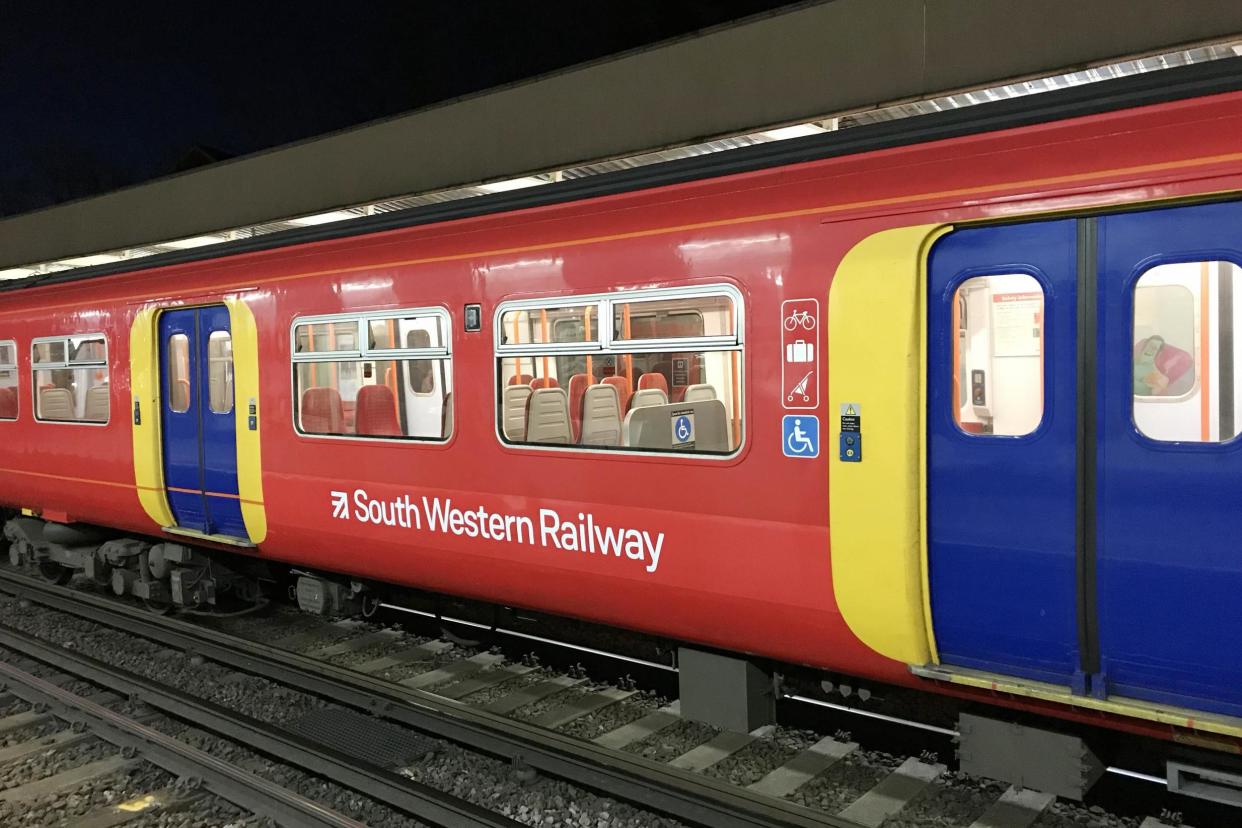South Western Railway strike: Five-day non-stop train strike hits London commuters

Commuters and half-term holidaymakers are facing travel misery as a five days of strikes forces South Western Railway to cancel almost 3,000 services.
The disruption started at midnight on Sunday night and will hit trains serving Waterloo. Some lines will be left without any trains or replacement buses during the walkout by hundreds of RMT train guards.
Tens of thousands of rugby fans will also suffer major disruption with further strikes on the first four Saturdays of November hitting England international fixtures at Twickenham.
The RMT was accused today of “cynically targeting hard-working commuters.”
SWR told passengers that a third of the usual 1,700 services will be cancelled from tomorrow until Friday, increasing to half the 1,500 trains schedule to run on Saturday.
There are no peace talks planned and commuters were today warned of major disruption all week in the worst concentrated strike action to hit the railways for years.
Routes without an SWR service include Leatherhead to Dorking; Teddington to Shepperton, Surbiton to Hampton Court and Salisbury to Bristol.
The line between Alton and Farnham will also be closed all week as Network Rail takes advantage of the strike to replace damaged track.
Buses will replace trains on routes including Surbiton to Guildford; Leatherhead to Guildford; Virginia Water to Weybridge; Ascot to Aldershot; Farnham to Alton and Worcester Park to Chessington South.
Passengers were warned that bus journeys would take longer, and that bicycles, prams or bulky luggage could not be carried on crowded services.
Following the five-day strike there will be four further walk-outs on successive Saturdays, hitting many sporting fixtures.
The dispute, with the threat of even more strikes to come in the run-up to Christmas, is over the changing role of the guard and the implementation of train driver-only operation (D00.)
The union says DOO is unsafe – claims robustly denied by rail industry chiefs who highlight its use across major parts of the UK.
An SWR spokesperson said in addition to hitting commuters the strikes will also affect “families trying to enjoy the half-term holidays and sports fans with its latest strike dates.
“We have guaranteed a guard to be rostered on every single service and our growth plans mean more guards, not fewer.
“It is time for the union to stop spreading myths and causing misery to our commuters and colleagues and commit to resolving this dispute.”
SWR “will do everything we can to keep our customers moving and reduce disruption”, the spokesperson said.
Those on strike stand to lose around £140 a day, with the nine day walkout costing each of those taking part more than £1,200.
Mick Cash, the RMT leader, accused SWR of “refusing to engage in a serious talks process”.
The two sides are at loggerheads over the small print which covers train guards. The union says having a guard rostered means that if that guard is late or fails to turn up for duty for whatever reason that train can still run with just the driver.
It is demanding a “no guard no train” guarantee which it has agreed with some other operators. SWR does not deny that in “exceptional circumstances” a train scheduled to run with a guard could run without one, but insists it would be a very small number and possibly only for part of the route. It says it needs the flexibility to maintain the timetable.

 Yahoo News
Yahoo News 
